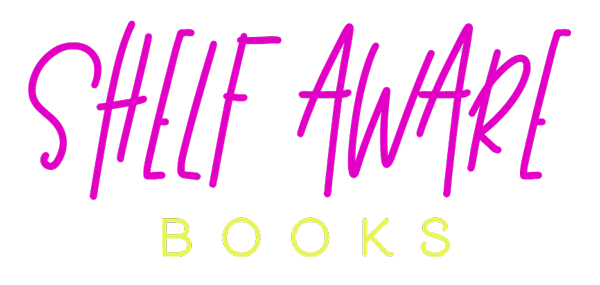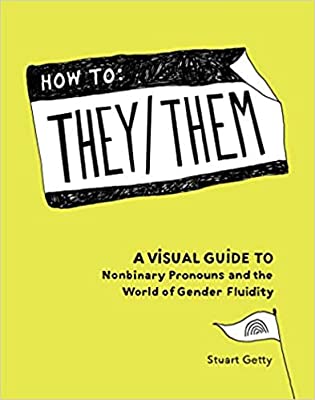SHELF AWARE PODCAST
Books To Help You Do The Work With Leann
Books and Podcasts and Bookstores!
Today’s episode is slightly different. Read the full transcript below to see all the books I talk about in order to help you do the work to be anti racist.
LINKS FOR BOOKS TO COME SOON!
FULL TRANSCRIPT OF EPISODE
Leann 0:00
Leann here, this episode is not my normal author interview. It’s a message from me to you, my favorite listener.
To be abundantly clear Black Lives Matter and black mental health matters to me. As Americans, we’re living through a time of grief at the loss of George Floyd, Breonna Taylor, Trayvon Martin, and so many other black people. For too long, systemic racism has been ignored and allowed to continue. Keeping with the status quo is not really my style. I can’t pretend everything is okay right now. And as a white person, silence is compliance, and I condemn racial injustice.
When I started this podcast, I wanted to help readers find truly useful self help books. And for me those lean towards the straight up how to do something titles. I personally have a bias towards evidence based authors like psychologists, social workers, therapists and coaches.
What that did was walk me right into the intersection of two industries – publishing and psychology – that are run by an overwhelming majority of white people. I’ve been watching the stats and only about 6% of employees in the publishing industry are black. You can see what that means for the books you get to choose from and that are stocked on your local big chain bookstores. They might have a table called something like “black authors” or “black studies”. Because Hello, The store is otherwise filled with white authors.
This past week white podcasters and bookstagrammers have been silent to allow the space for black voices to be heard. It was amazing to scroll through my feed and hear from black people who are normally drowned out because white people share other white people leading to a big white echo chamber. It’s important to me to amplify underrepresented voices instead, and help promote social change through education and self awareness. Black Lives Matter is not a political statement. So don’t @ me about it. Black people being harassed and murdered by a system that has a history of not even being held accountable is a human rights issue that needs our actions to change.
One thing that’s been bothering me is the number of white people I’m hearing from who say “but I’m colorblind, I think we should just all get along”. This is exactly a part of the work that we as white people are being called to become aware of and eliminate.
Carl Jung has been quoted as saying “until you make the unconscious conscious, it will direct your life and you will call it fate”.
I am listening and learning from the black community and I’m personally doing the work to become more self aware and anti racist in order to break out of this white echo chamber. What I’m here to do today is make sure you, my favorite listener, get to hear more from black authors and black therapists and to help white people understand the traumas that are unique to black people. This is not to check a box, but to amplify the black voices who have been working to be heard and recognized, but haven’t gotten the same level of attention. I’m hoping By sharing these voices, it helps fell away people who are doing the work, but are still scared of saying the white thing, find resources. So we’re not asking our black friends and family to hold our hands. And shout out to Sarah Steckler at mindful productivity podcast for that accurate configuration of words. For my black listeners, I’m listening to you. If you’re a black author, or mental health practitioner and you’d be willing to be on the podcast, I would love to have you.
For my white listeners. I of course, have a list of books for you to read today. I know I’ve seen lists being shared all over social media and I’m sure you have too. But these are a few of the ones I really would start with. Now where to find these. You can go visit mahogany books in Washington DC, at mahoganybooks.com or I purchased a slew from loyalty books in Maryland. Loyalty books is owned by Hannah Oliver Depp, a black and queer bookseller who has spent her career working to diversify the book industry.
My first book I want to start you off with today is “So You Want To Talk About Race” by Ijeoma Oluo. This one seems to be at the top of everyone’s reading list, but I don’t want you to skip it.
Next is “How To Be Anti Racist” and the book “Stamped From The Beginning, The Definitive History Of Racist Ideas in America”, by Dr. Ibram Kendi. He writes with such a clear, compassionate voice, and when you start to think about being more than just not racist, and actually being anti racist, I think it will really help white people understand that we are all swimming in the system. And it will take years of practicing self awareness and intentional actions to lift our heads out of this and find a better way for quality.
Mind you, good luck buying paper copies right now, as they are sold out everywhere as at the time of this recording. Try going to libro.fm or audible to listen. Or you can pick it up on Kindle to read right now.
For the people who say they’re colorblind, here’s a book to help you with that. It’s by Professor Edwardo Bonilla Silva, titled “Racism Without Racists: Colorblind Racism And The Persistence of Racism in America”. Professor Bonilla Silva has a very conversational style and a way of writing that really helped me find some blind spots I didn’t realize I had, hence why they were blind spots and why I think you should read this book.
Another Title I really want to recommend in order to help become aware of how we justify racism in society is “Why Are All The Black Kids Sitting Together In The Cafeteria” by Dr. Beverly Daniel Tatum.
Now the book that I have in my hands right now that I’m starting is “The Inner Work of Racial Justice: Healing Ourselves and Transforming Our Communities Through Mindfulness” by Dr. Rhonda McGee.
I also recommend you check out “The Unapologetic Guide To Black Mental Health” by Dr. Rheeda Walker from New Harbinger. I have that one on order and haven’t started reading it yet, but I’m really looking forward to it.
After you read these books, I want you to phone a frienf – a white friend – and get reeeeeally uncomfortable talking about the book. If you want the chance to discuss this even morem there’s an online Facebook group called analyzing white privilege book club that you can join in there reading “White Fragility” by Robyn D’Angelo.
If you’re an Instagram, I encourage you to go look up and follow melonated reader, black mental wellness and black female therapists black female therapists has a fund to match black therapists with those who need to see someone but can’t afford it. I saw the National Alliance of mental health put out a report that only 30% of people in the black community who have mental health challenges actually receive mental health due to lack of proper diagnosis, access to providers and cost. If you want to hear great podcast and social justice and health issues, check out Dr. Samuel Roberts podcast, people doing interesting stuff. He’s also the author of infectious fear, politics, disease and the health effects of segregation.
This past week. I’ve also really enjoyed listening to Kelly from the burn bright podcast. She’s a burnout expert, licensed therapist and coach and she talks about the issues facing the black community with wisdom and compassion.
I’ll end this with Thank you for listening. Please take care of each other. wear a mask and don’t forget to take the time for mental health. And self care.
Happy reading.
Transcribed by https://otter.ai
LISTEN NOW

